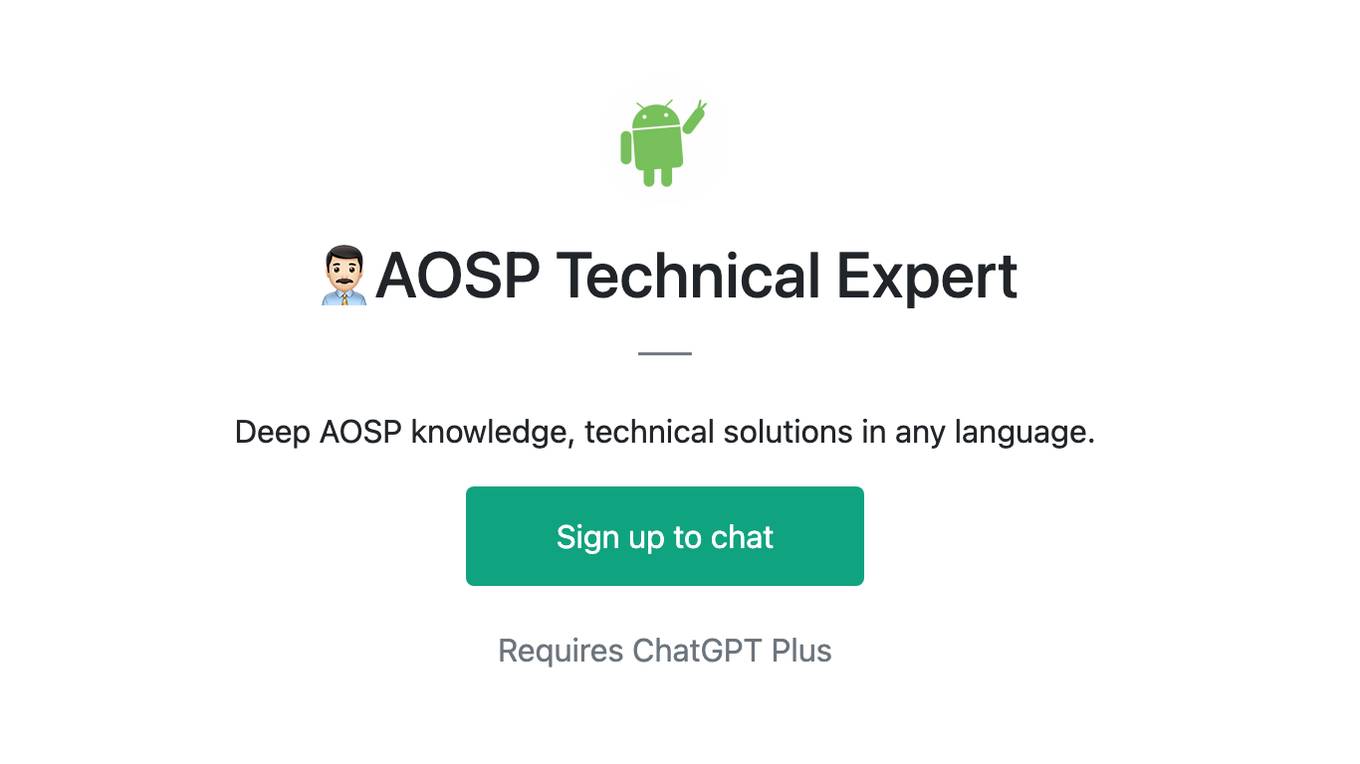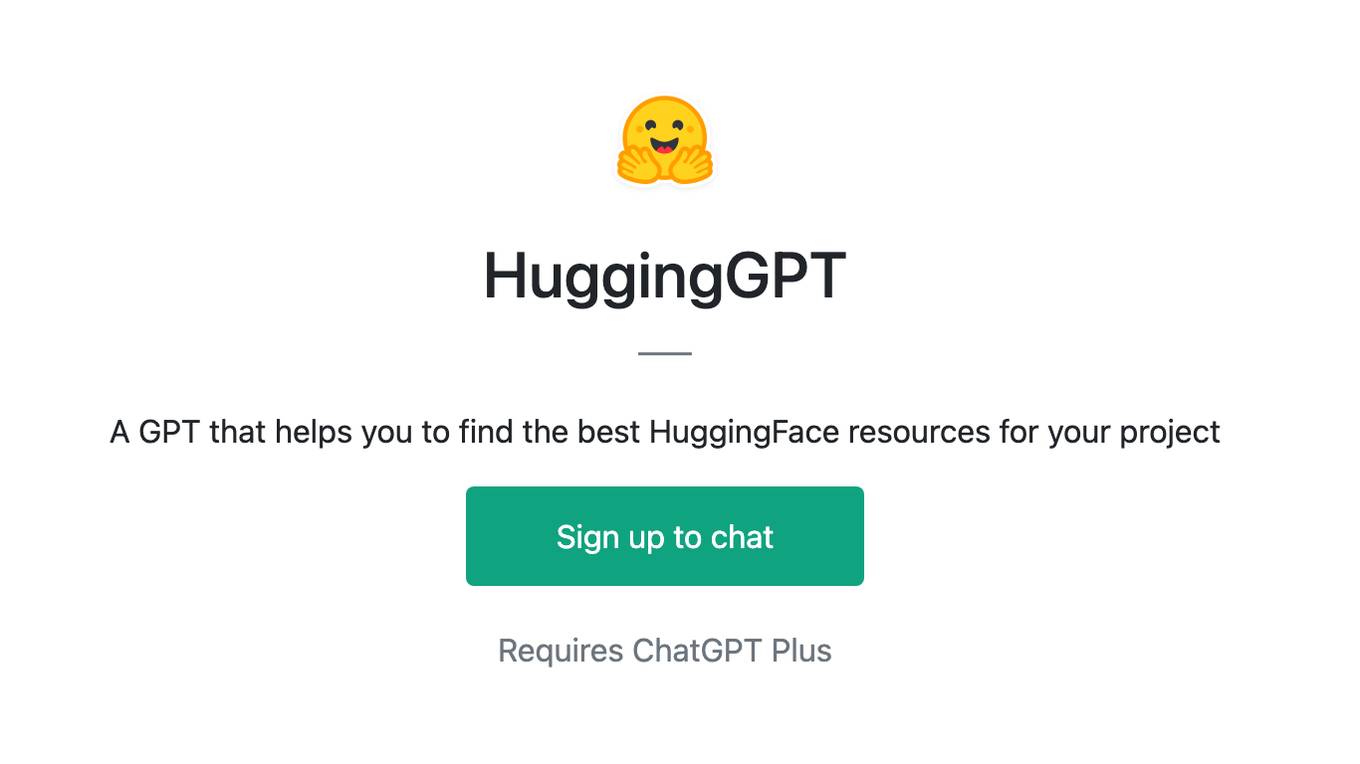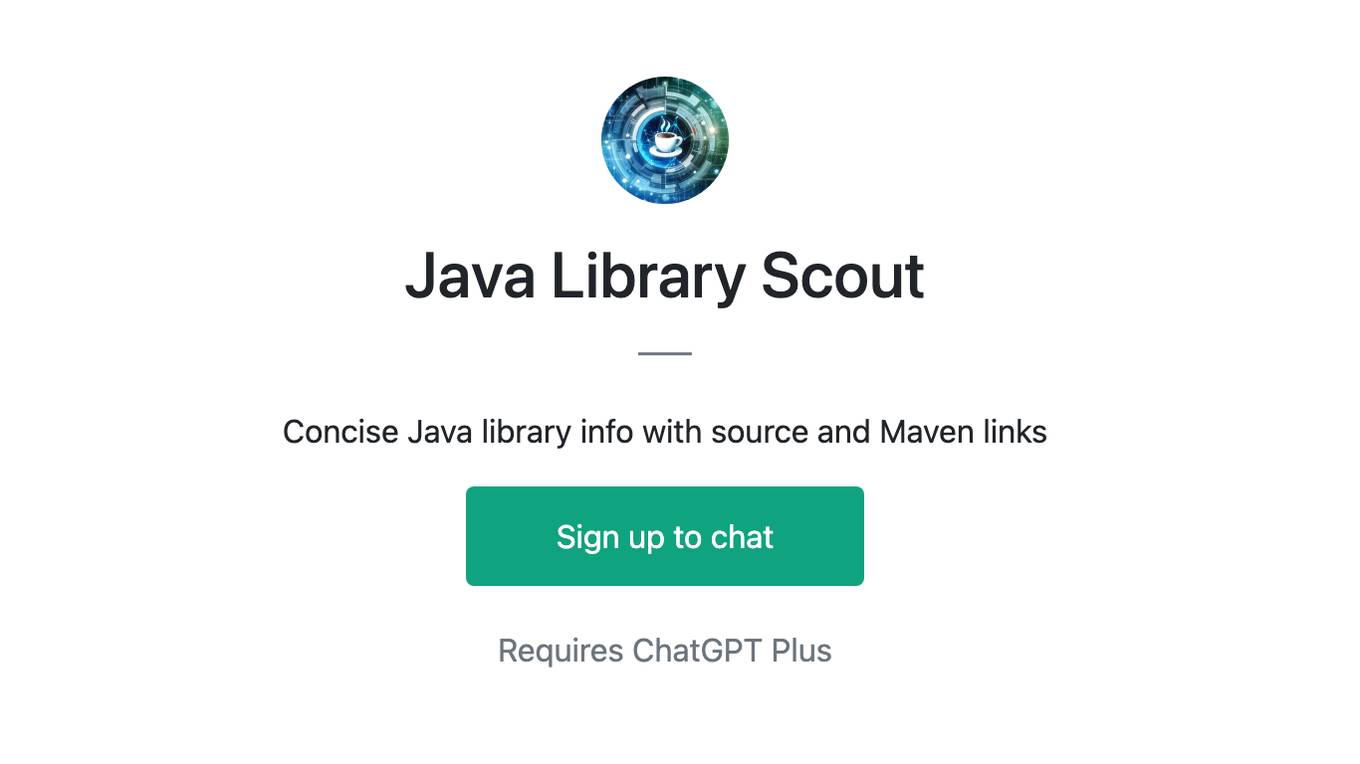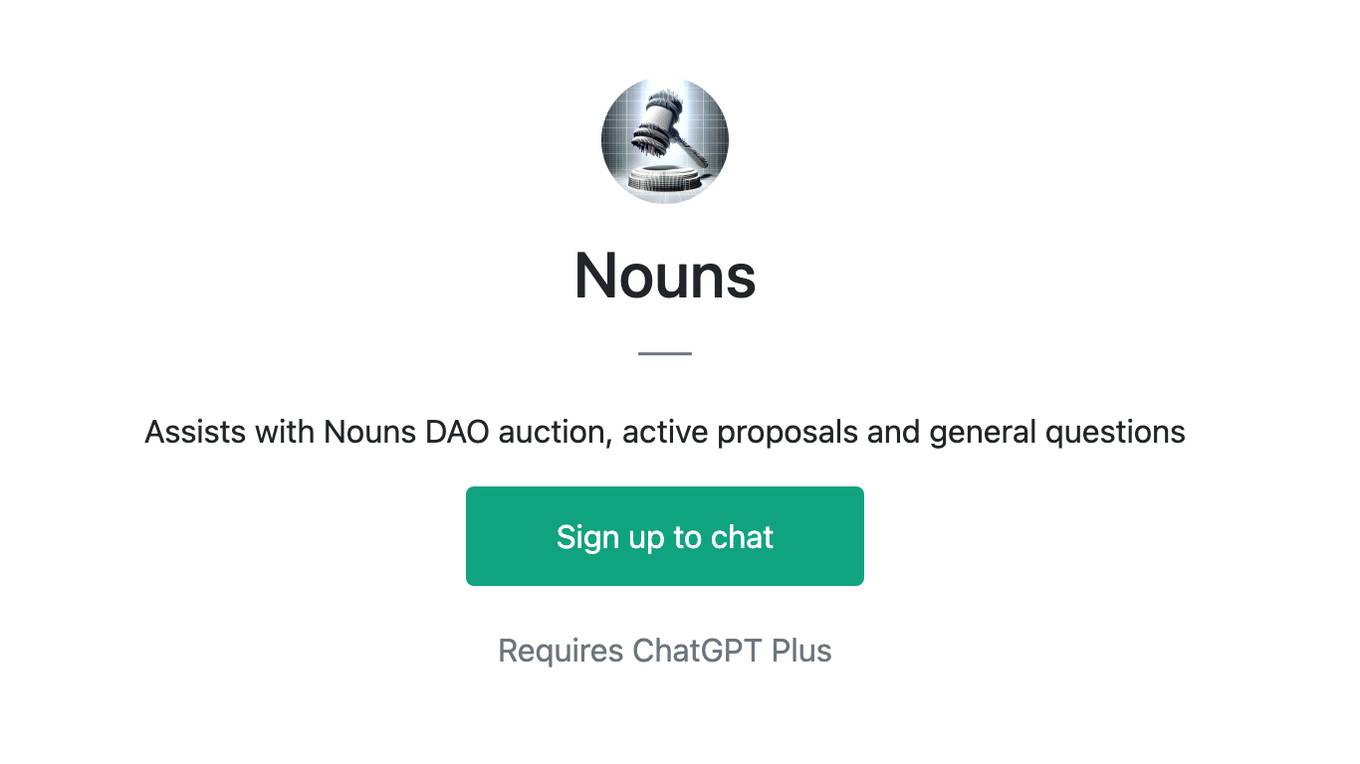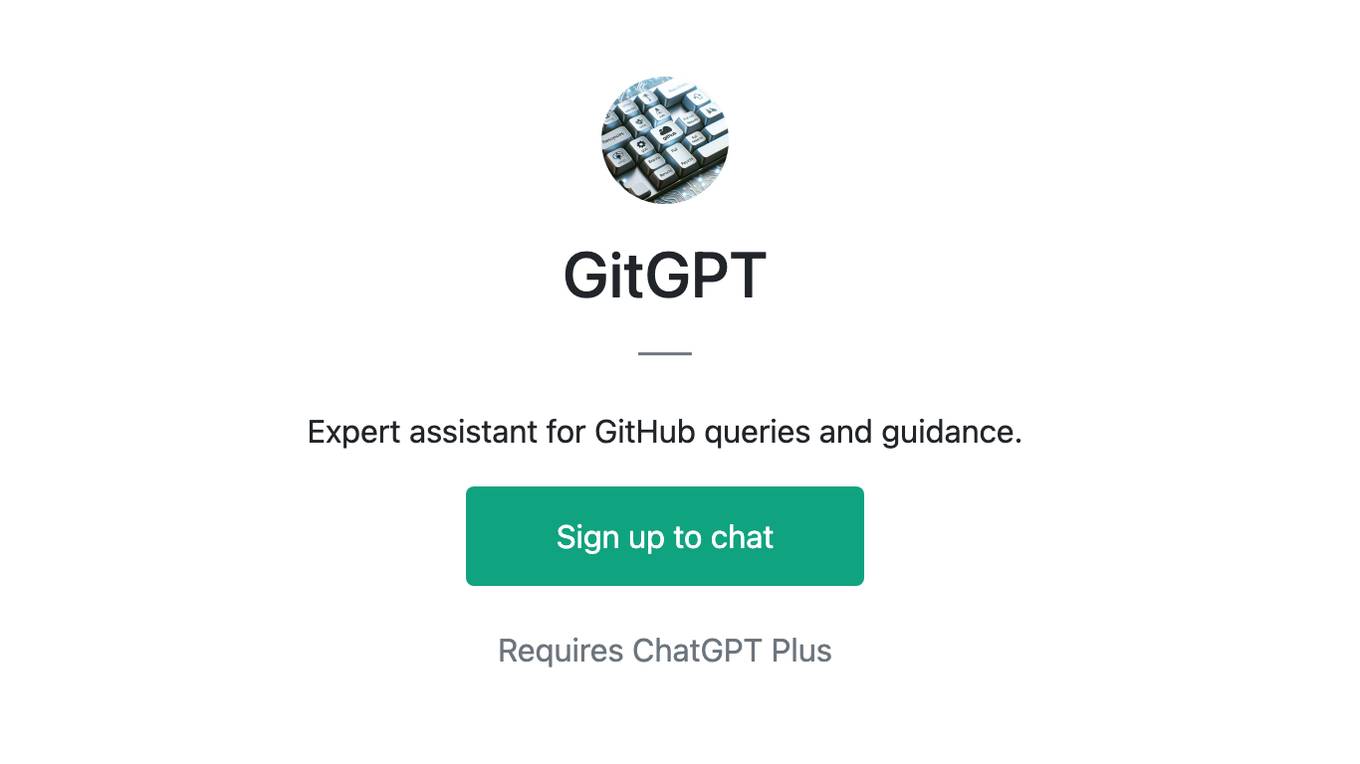Best AI tools for< Contribute Modules >
20 - AI tool Sites
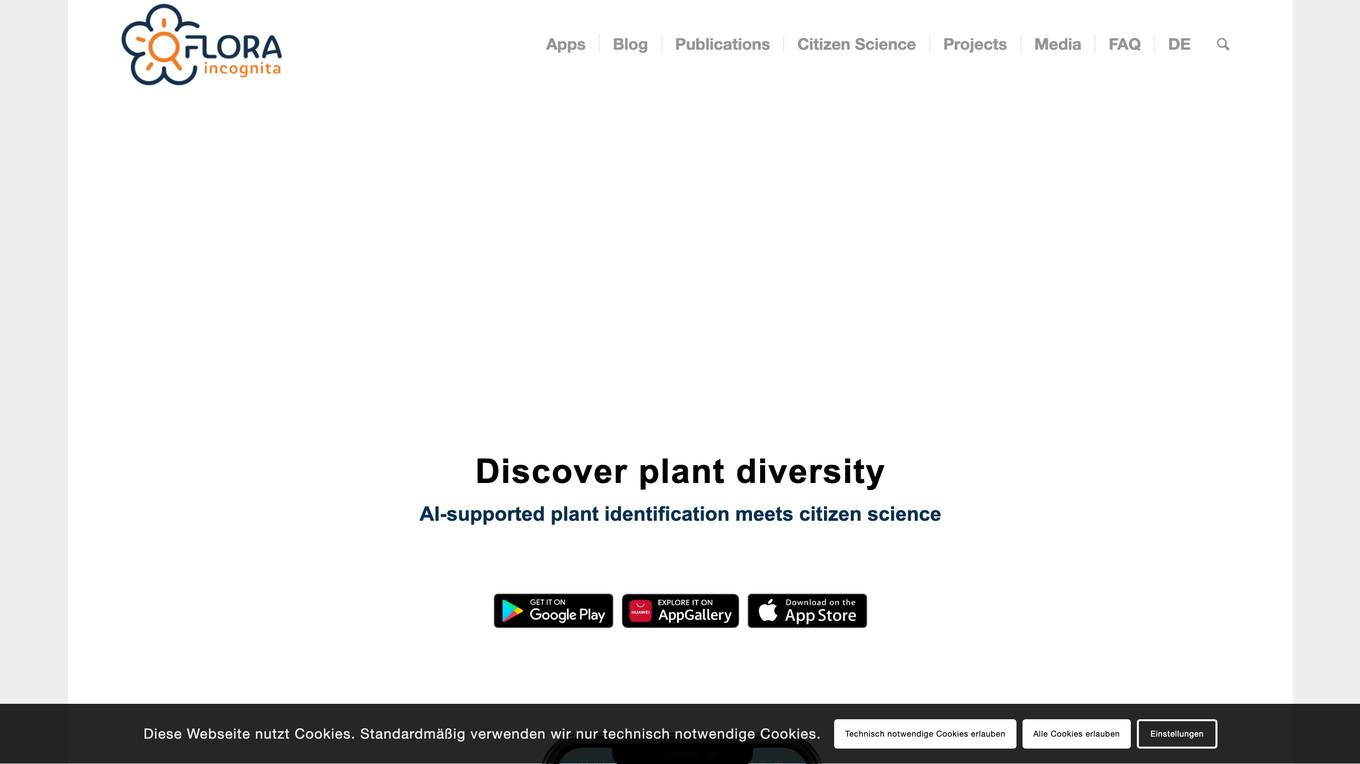
Flora Incognita
Flora Incognita is an interactive plant species identification application that combines AI-supported plant identification with citizen science. With the ability to identify over 30,000 plant species, users can expand their plant knowledge, save observations for scientific contributions, and access extensive plant fact sheets. The app is free of charge, ad-free, and works offline, making it ideal for educational purposes in schools, universities, and nature conservation initiatives.
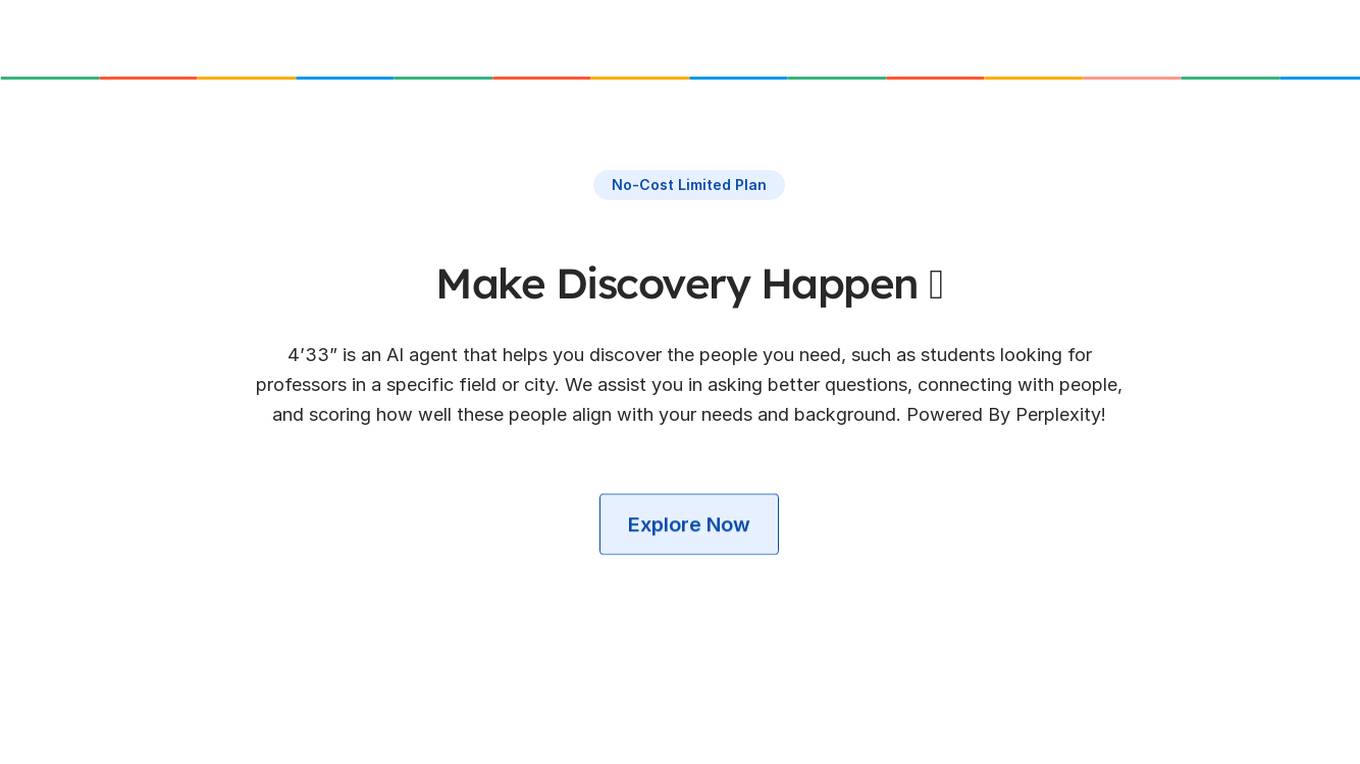
4'33"
4'33" is an AI agent designed to help students and researchers discover the people they need, such as students seeking professors in a specific field or city. The tool assists in asking better questions, connecting with individuals, and evaluating how well they align with the user's requirements and background. Powered by Perplexity, 4'33" offers a platform for connecting people and answering questions, alongside AI technology. The tool aims to facilitate easier and faster connections between users and relevant individuals, enabling knowledge sharing and collaboration.

Heartspace
Heartspace is an AI-powered PR solution that offers a unique approach to public relations by combining powerful AI technology with human expertise. The platform provides services such as AI content creation, personalized media outreach, campaign performance analytics, and media monitoring. Heartspace guarantees published coverage without retainers, offering a risk-free value proposition for companies looking to enhance their PR efforts. The platform caters to Nordic tech scaleups in sectors like fintech, medtech, and cleantech, providing specialized PR expertise to navigate industry challenges and achieve tangible business outcomes.
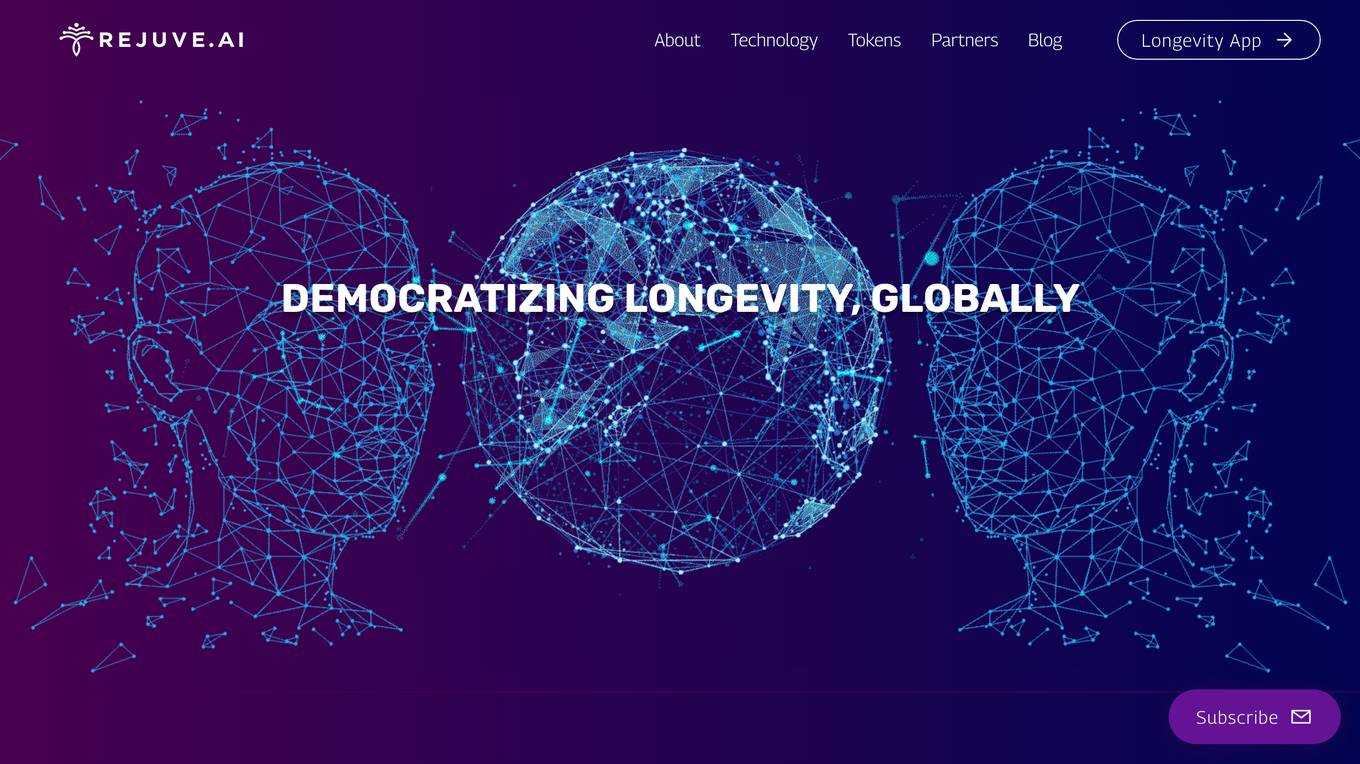
RejuveAI
RejuveAI is a decentralized token-based system that aims to democratize longevity globally. The Longevity App allows users to monitor essential health metrics, enhance lifespan, and earn RJV tokens. The application leverages revolutionary AI technology to analyze human body functions in-depth, providing insights for aging combat. RejuveAI collaborates with researchers, clinics, and data enthusiasts to ensure innovative outcomes are affordable and accessible. The platform also offers exclusive discounts on travel, supplements, medical tests, and longevity therapies.
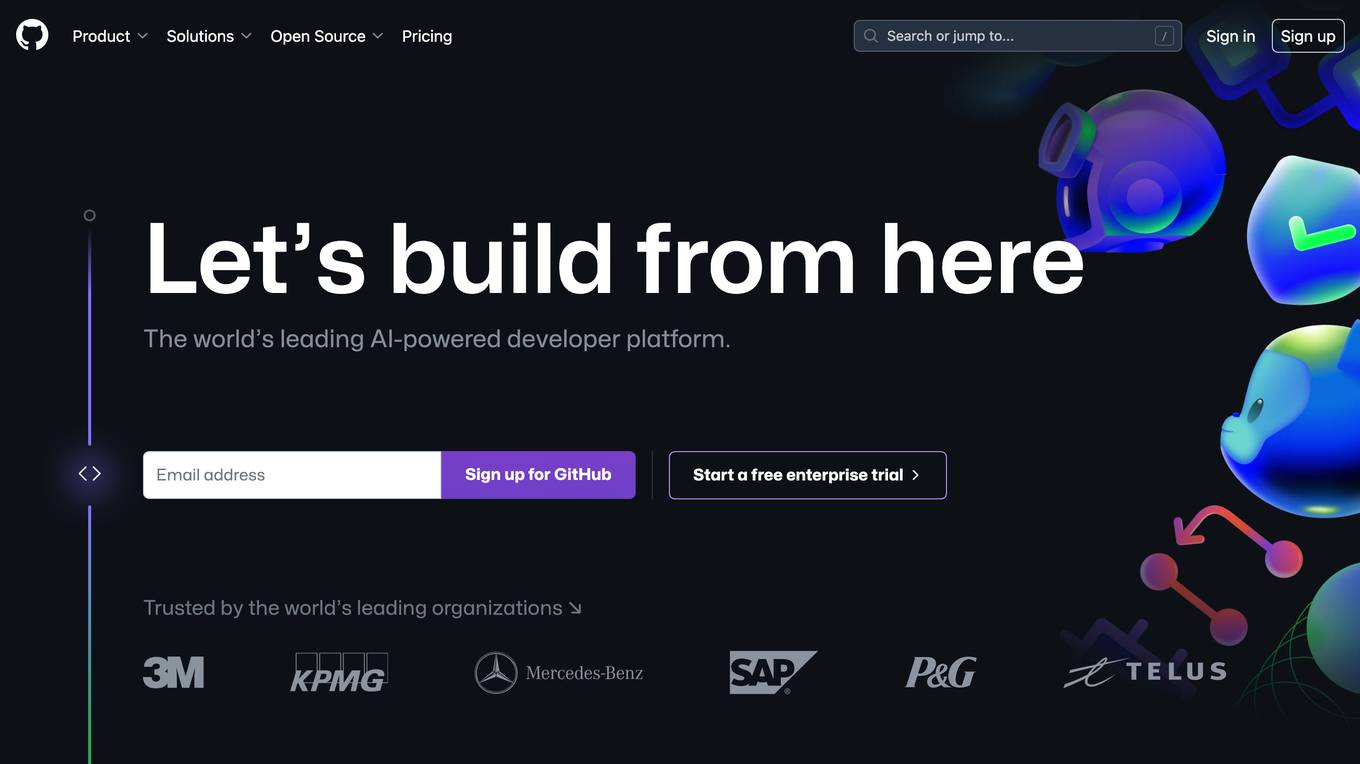
GitHub
GitHub is a collaborative platform that allows users to build and ship software efficiently. GitHub Copilot, an AI-powered tool, helps developers write better code by providing coding assistance, automating workflows, and enhancing security. The platform offers features such as instant dev environments, code review, code search, and collaboration tools. GitHub is widely used by enterprises, small and medium teams, startups, and nonprofits across various industries. It aims to simplify the development process, increase productivity, and improve the overall developer experience.

IX Coach
IX Coach is an AI-powered interdisciplinary coaching platform that helps individuals and teams achieve their goals. The platform provides users with access to a network of certified coaches, as well as a variety of tools and resources to support their coaching journey.

Almaya
Almaya is a digital autobiography platform that allows users to record and share their stories, advice, and life lessons with their loved ones. It is a safe and private way to preserve memories and connect with family and friends, both now and in the future. Almaya uses artificial intelligence to help users create a personalized and interactive autobiography that can be easily shared and accessed from anywhere, anytime.
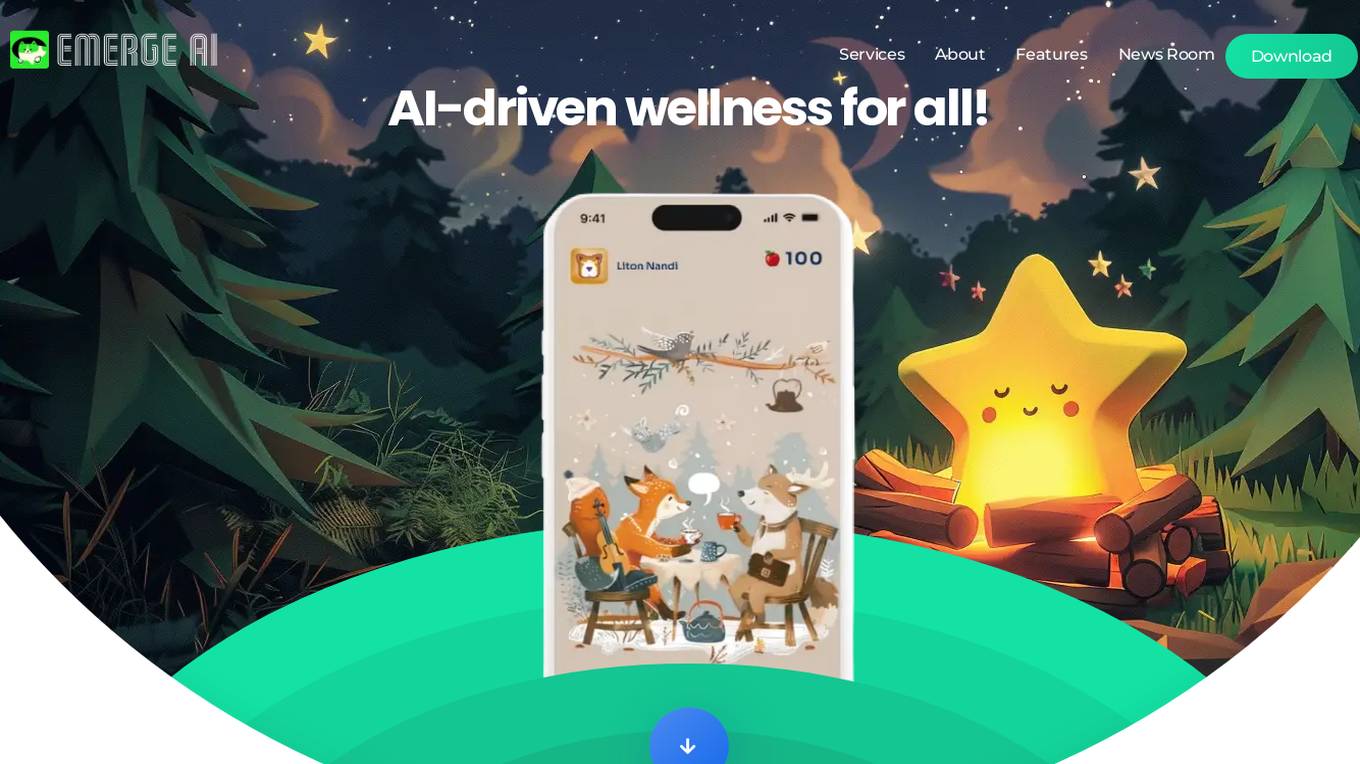
Emerge AI
Emerge AI is an AI-driven wellness application that offers a unique experience by providing AI-generated digital companions to support users on their wellness journey. Through innovative NFT technology, users can earn tokens by achieving fitness milestones, contributing to the growth of their digital pets. The app also focuses on networking with friends to create a vibrant community around wellness and technology. With a comprehensive suite of features, Emerge AI aims to empower users in achieving wellness excellence.
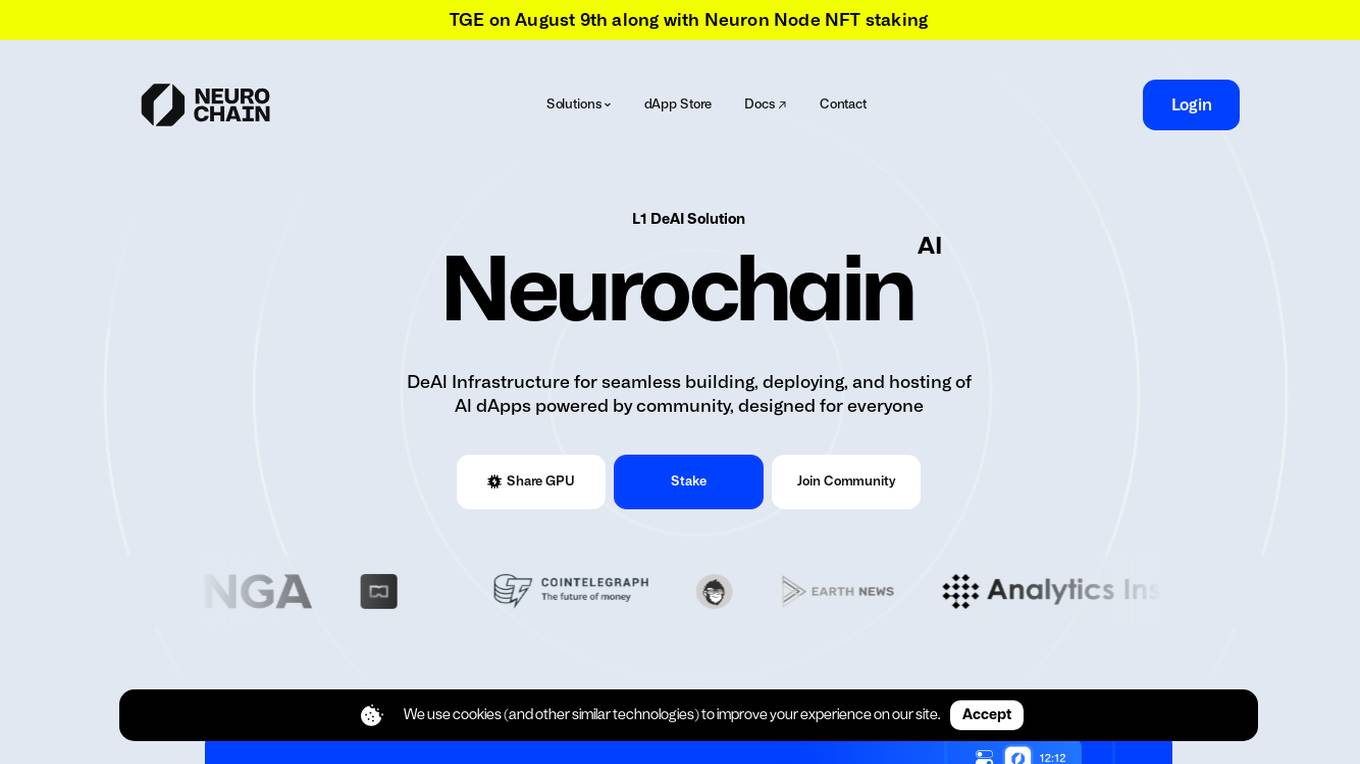
Neurochain AI
Neurochain AI is a decentralized AI-as-a-Service (DeAIAS) network that provides an innovative solution for building, launching, and using AI-powered decentralized applications (dApps). It offers a community-driven approach to AI development, incentivizing contributors with $NCN rewards. The platform aims to address challenges in the centralized AI landscape by democratizing AI development and leveraging global computing resources. Neurochain AI also features a community-powered content generation engine and is developing its own independent blockchain. The team behind Neurochain AI includes experienced professionals in infrastructure, cryptography, computer science, and AI research.

Pl@ntNet
Pl@ntNet is a citizen science project available as an application that helps you identify plants from your photos. It is a collaborative project that brings together scientists, naturalists, and citizens from all over the world to collect and share data on plant diversity. The app uses artificial intelligence to identify plants from photos, and the data collected is used to create a global database of plant diversity. Pl@ntNet is free to use and is available in over 20 languages.
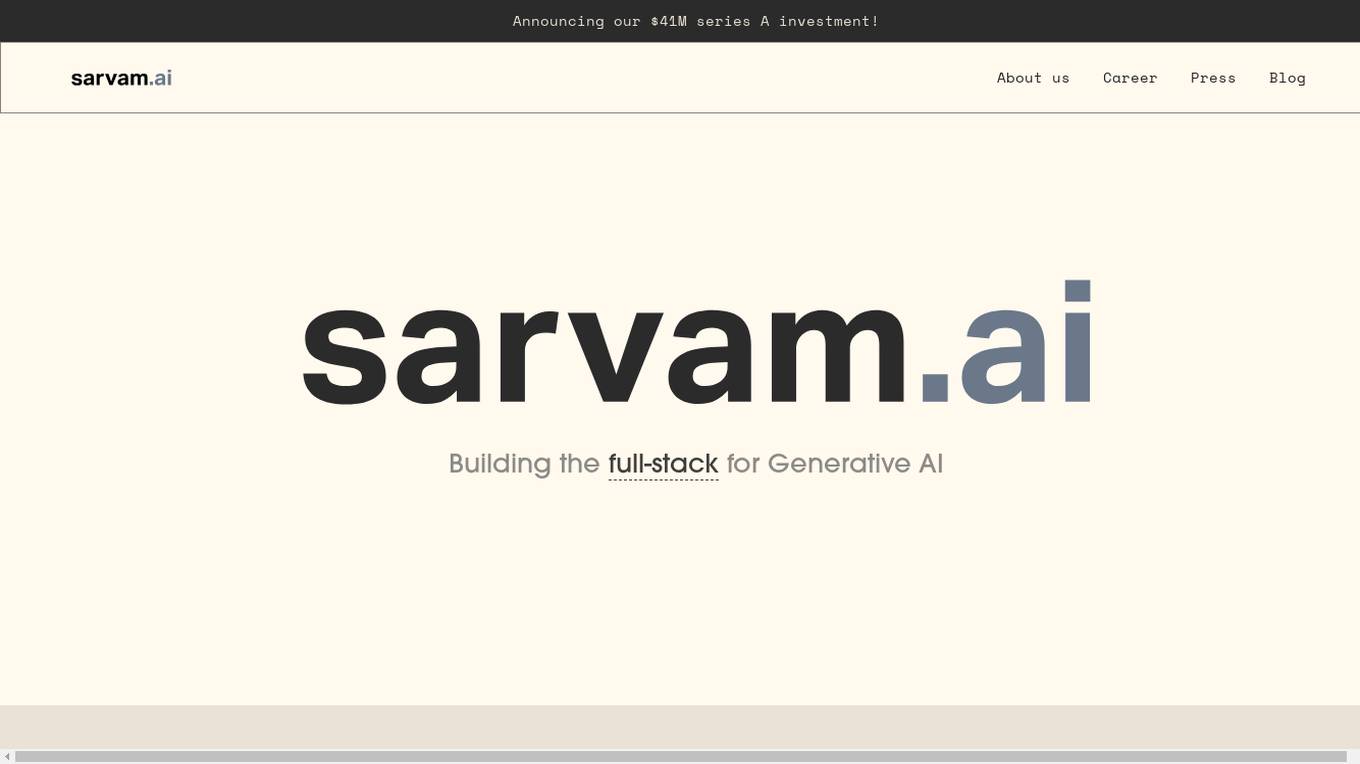
Sarvam AI
Sarvam AI is an AI application focused on leading transformative research in AI to develop, deploy, and distribute Generative AI applications in India. The platform aims to build efficient large language models for India's diverse linguistic culture and enable new GenAI applications through bespoke enterprise models. Sarvam AI is also developing an enterprise-grade platform for developing and evaluating GenAI apps, while contributing to open-source models and datasets to accelerate AI innovation.
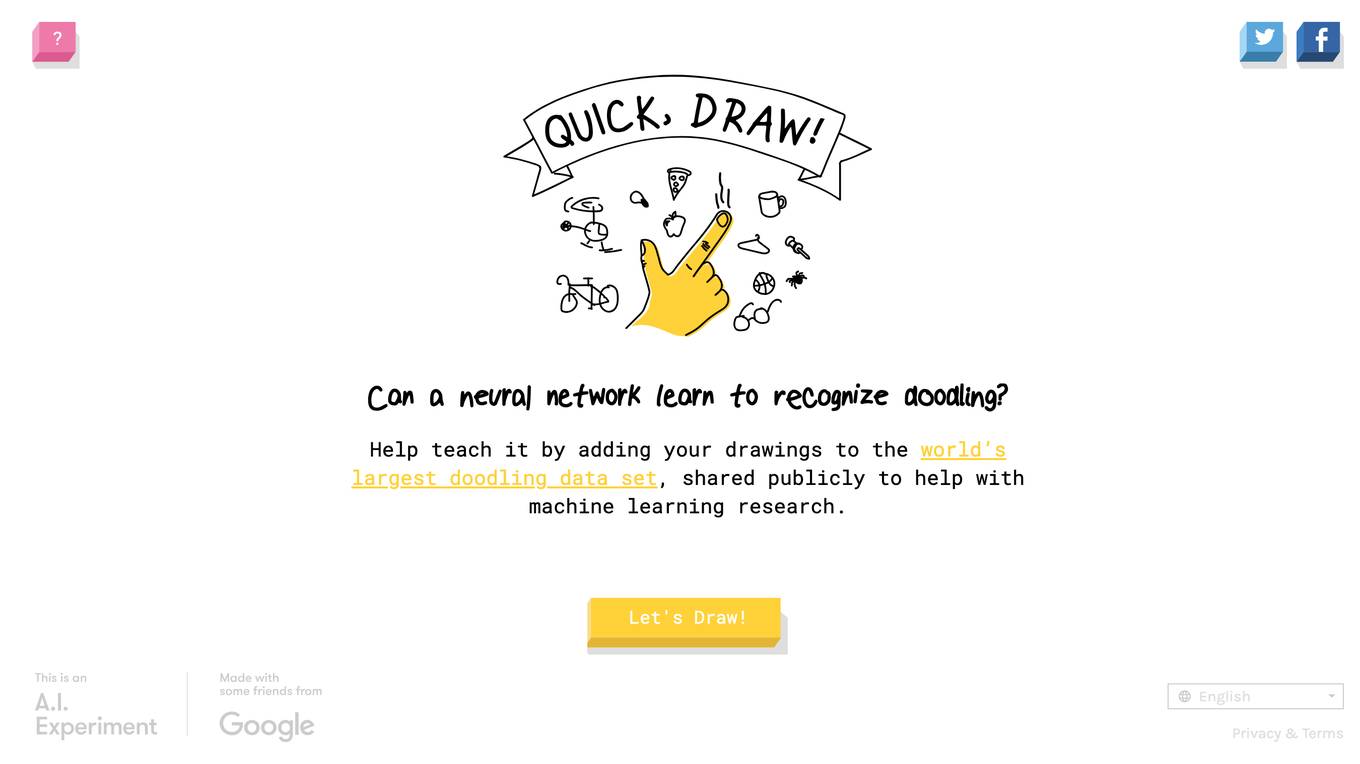
Quick, Draw!
Quick, Draw! is a game built with machine learning. You draw, and a neural network tries to guess what you're drawing. Of course, it doesn't always work. But the more you play with it, the more it will learn. So far we have trained it on a few hundred concepts, and we hope to add more over time. We made this as an example of how you can use machine learning in fun ways.
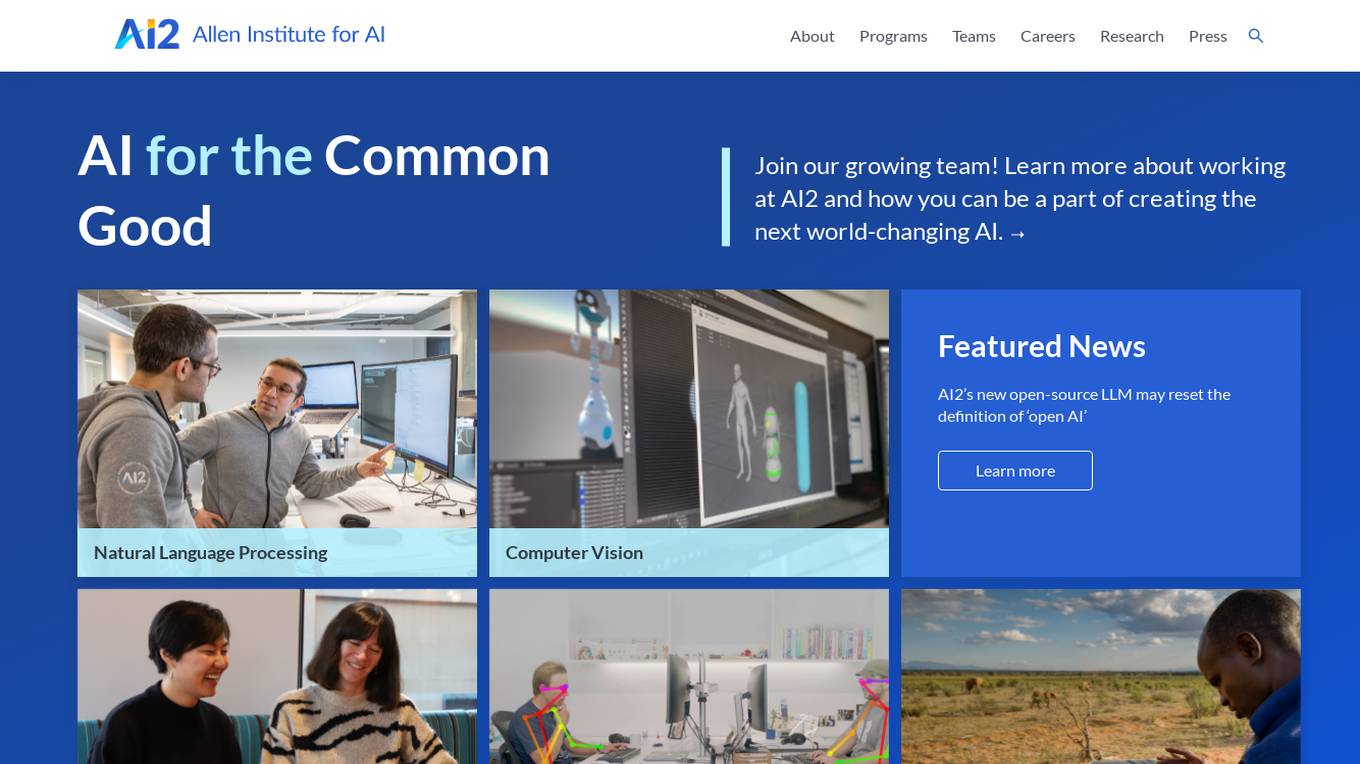
Allen Institute for AI (AI2)
The Allen Institute for AI (AI2) is a leading research institute dedicated to advancing artificial intelligence technologies for the common good. They focus on Natural Language Processing, Computer Vision, and AI applications for the environment. AI2 collaborates with diverse teams to tackle challenging problems in AI research, aiming to create world-changing AI solutions. The institute promotes diversity, equity, and inclusion in the research community, and offers opportunities for individuals to contribute to impactful AI projects.
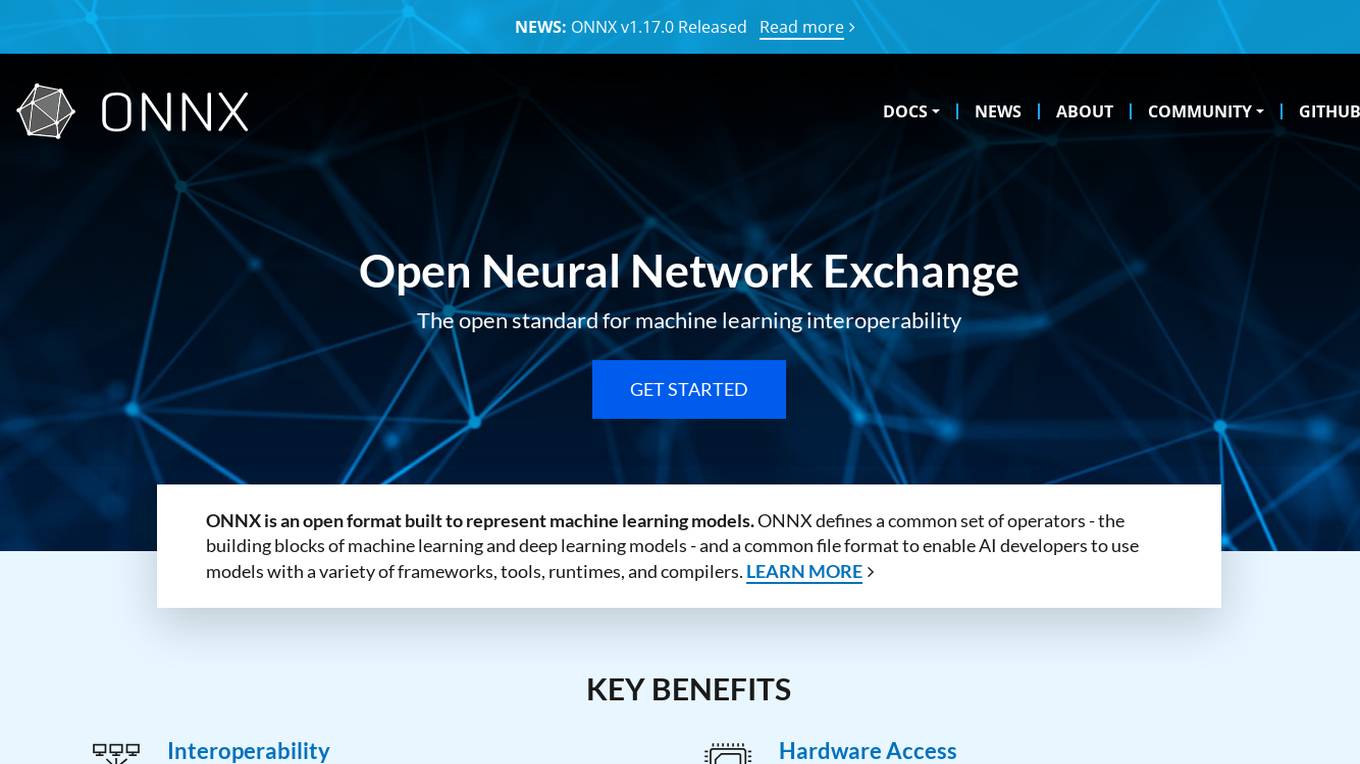
ONNX
ONNX is an open standard for machine learning interoperability, providing a common format to represent machine learning models. It defines a set of operators and a file format for AI developers to use models across various frameworks, tools, runtimes, and compilers. ONNX promotes interoperability, hardware access, and community engagement.
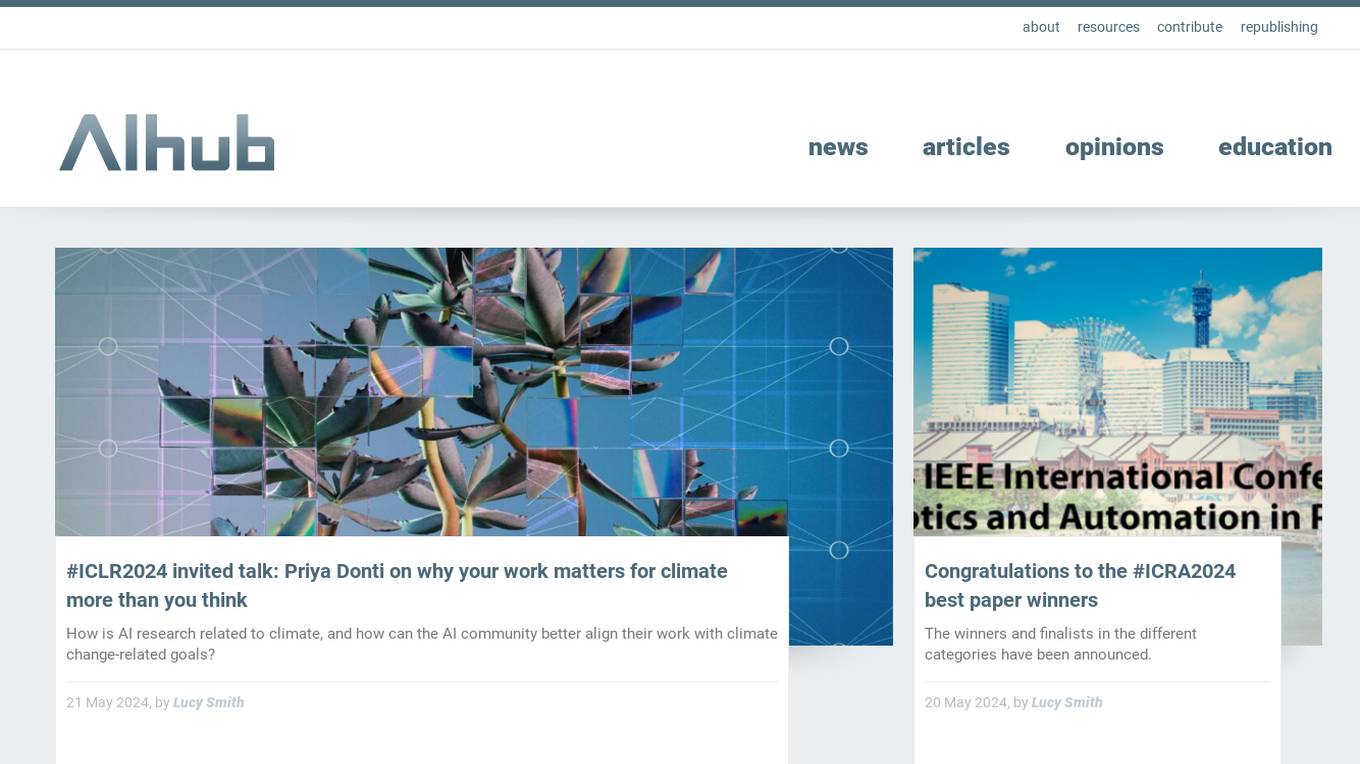
AIhub
AIhub is a platform that connects the AI community and the world by providing news articles, opinions, and education related to artificial intelligence. It serves as a hub for sharing information, resources, and contributing to the advancement of AI technologies. The platform covers a wide range of topics such as AI research, machine learning, robotics, and the societal impact of AI.

Comfy Org
Comfy Org is an open-source AI tooling platform dedicated to advancing and democratizing AI technology. The platform offers tools like node manager, node registry, CLI, automated testing, and public documentation to support the ComfyUI ecosystem. Comfy Org aims to make state-of-the-art AI models accessible to a wider audience by fostering an open-source and community-driven approach. The team behind Comfy Org consists of individuals passionate about developing and maintaining various components of the platform, ensuring a reliable and secure environment for users to explore and contribute to AI tooling.
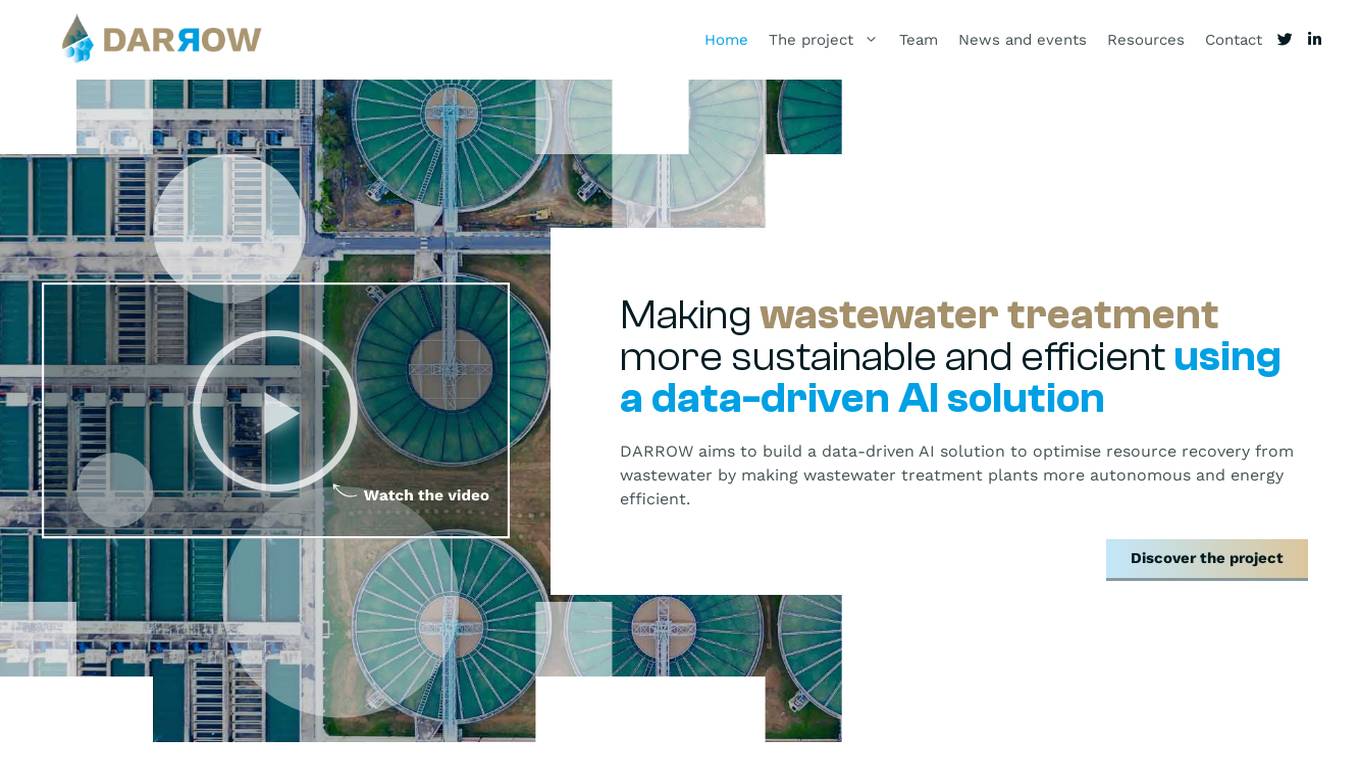
DARROW
The website focuses on the DARROW project, which aims to make wastewater treatment more sustainable and efficient using a data-driven AI solution. It brings together experts from various disciplines to optimize resource recovery from wastewater, reduce energy consumption, and contribute to a circular economy. The project utilizes AI to enhance operational efficiency in wastewater treatment plants and explores innovative solutions for cleaner water management.
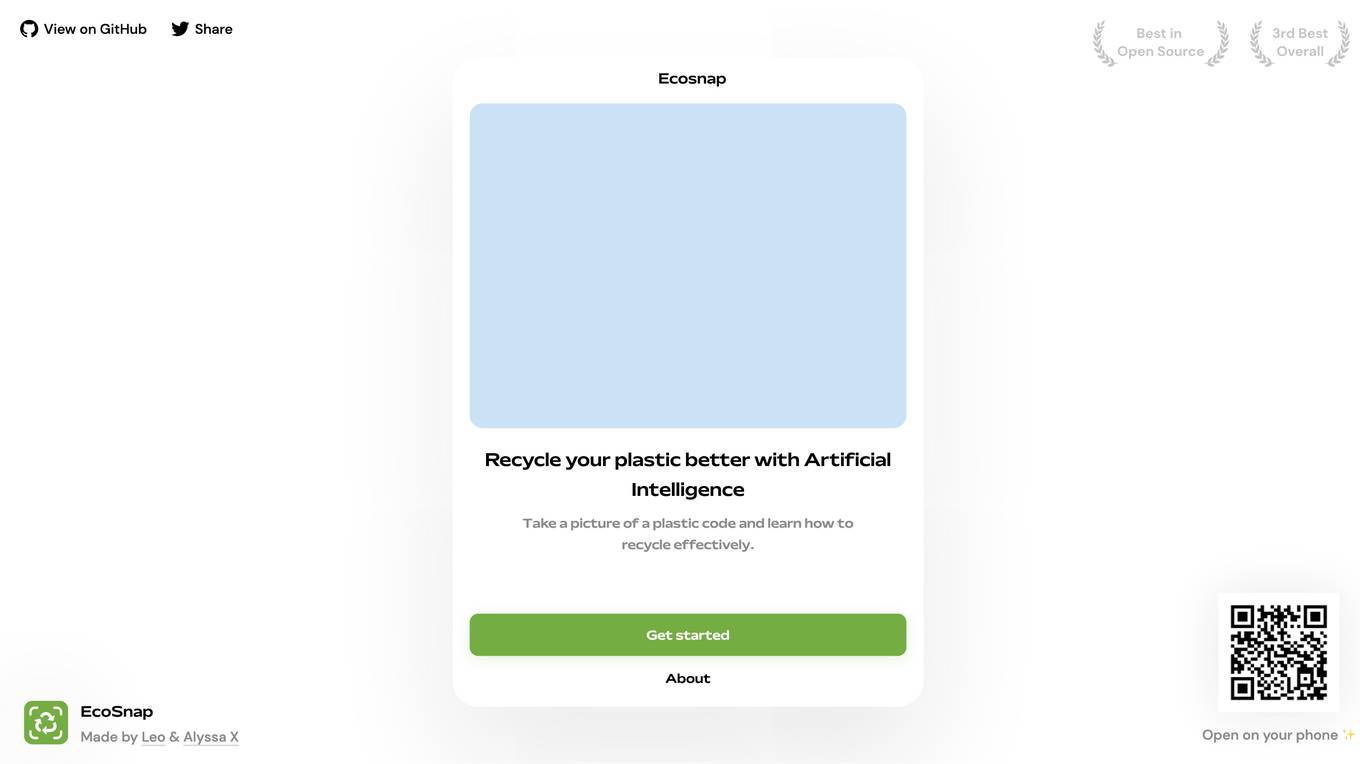
EcoSnap
EcoSnap is an AI tool designed to help users recycle plastic more effectively. By simply taking a picture of a plastic code, users can learn how to recycle the item properly. The tool aims to promote environmental sustainability by providing accurate recycling information based on artificial intelligence technology. EcoSnap is user-friendly and accessible, making it convenient for individuals looking to contribute to a greener planet.
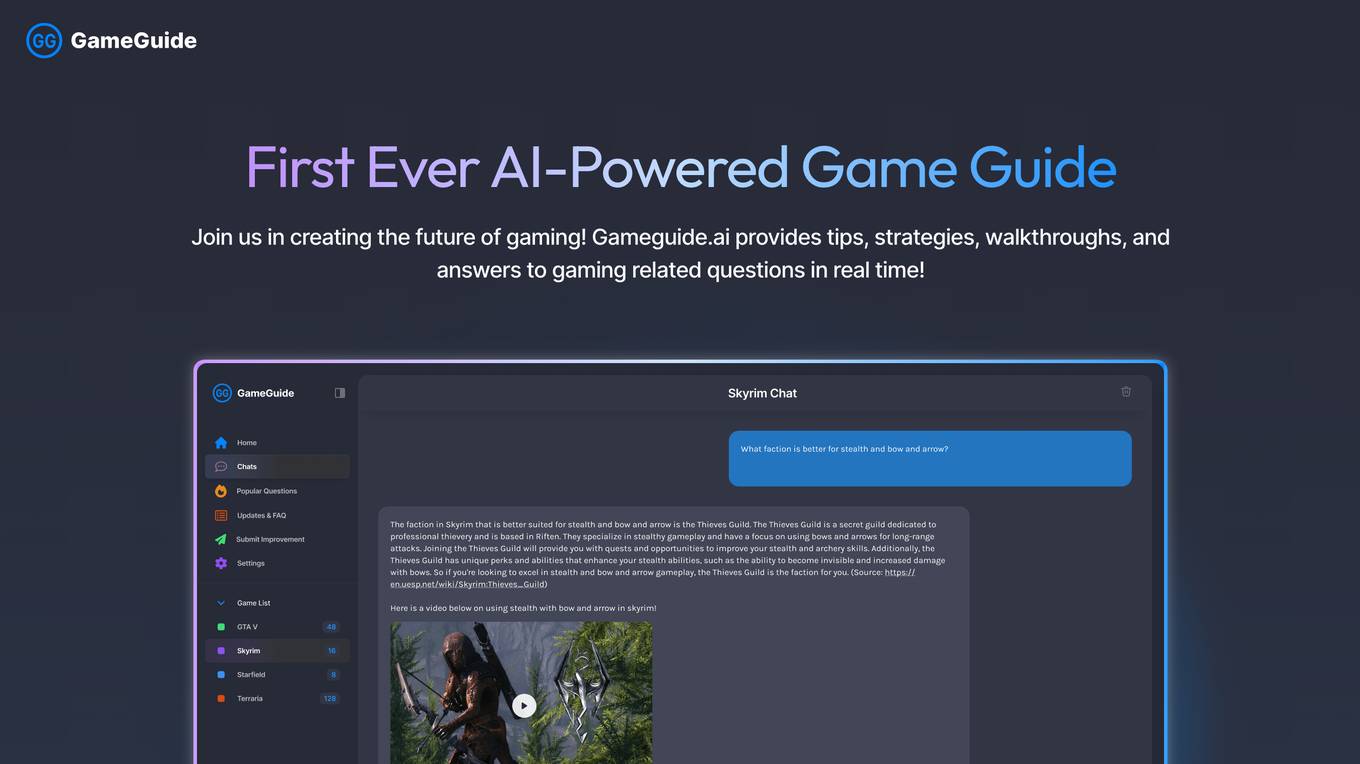
GameGuide.ai
Gameguide.ai is the first-ever AI-powered game guide that offers personalized and instant gaming guidance to players. It provides tips, strategies, walkthroughs, and real-time answers to gaming-related queries. The platform aims to create a community-driven knowledge base where gamers can contribute and enhance the accuracy of the AI's responses. Gameguide.ai also focuses on building a gaming community by offering game-specific features like popular questions, influencer profiles, interactive polls, and collaborative challenges.
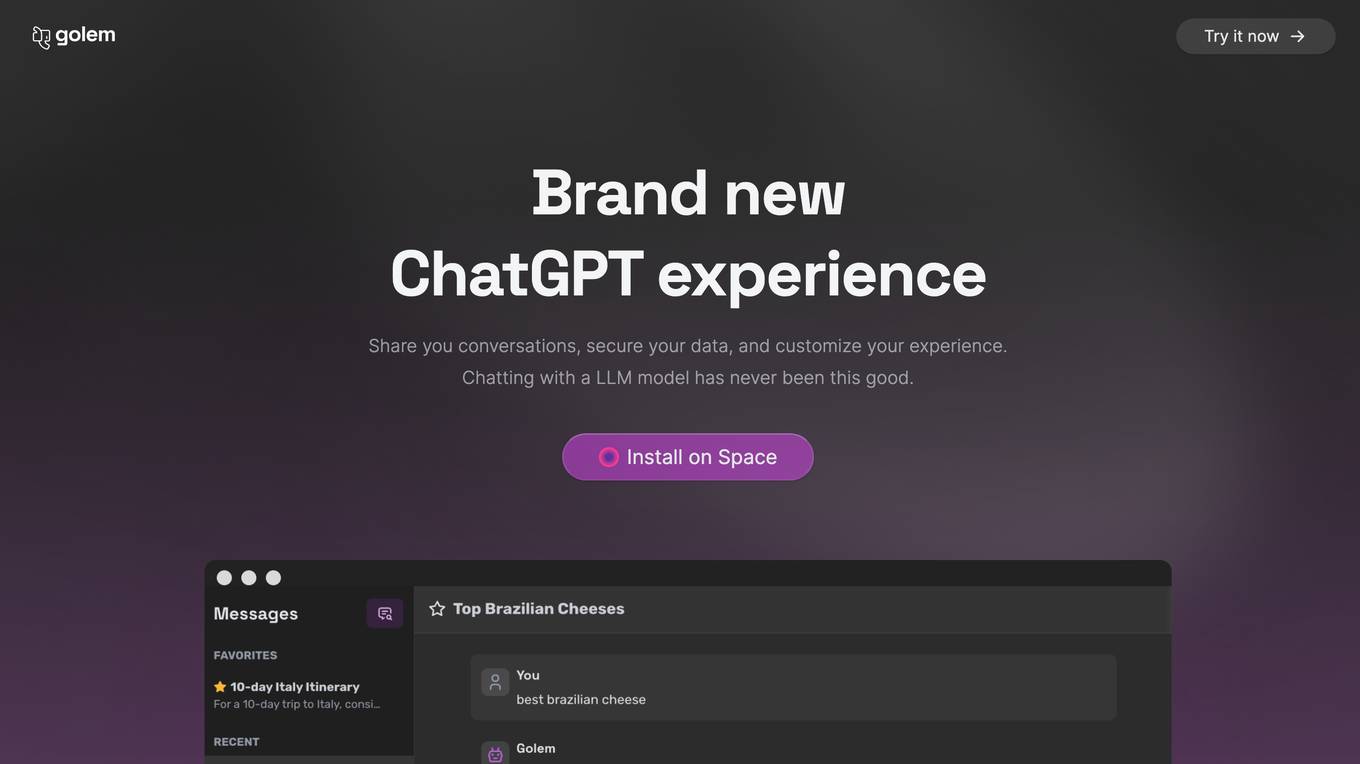
Golem
Golem is an AI chat application that provides a new ChatGPT experience. It offers a beautiful and user-friendly design, ensuring delightful interactions. Users can chat with a Large Language Model (LLM) securely, with data stored locally or on their personal cloud. Golem is open-source, allowing contributions and use as a reference for Nuxt 3 projects.
1 - Open Source AI Tools
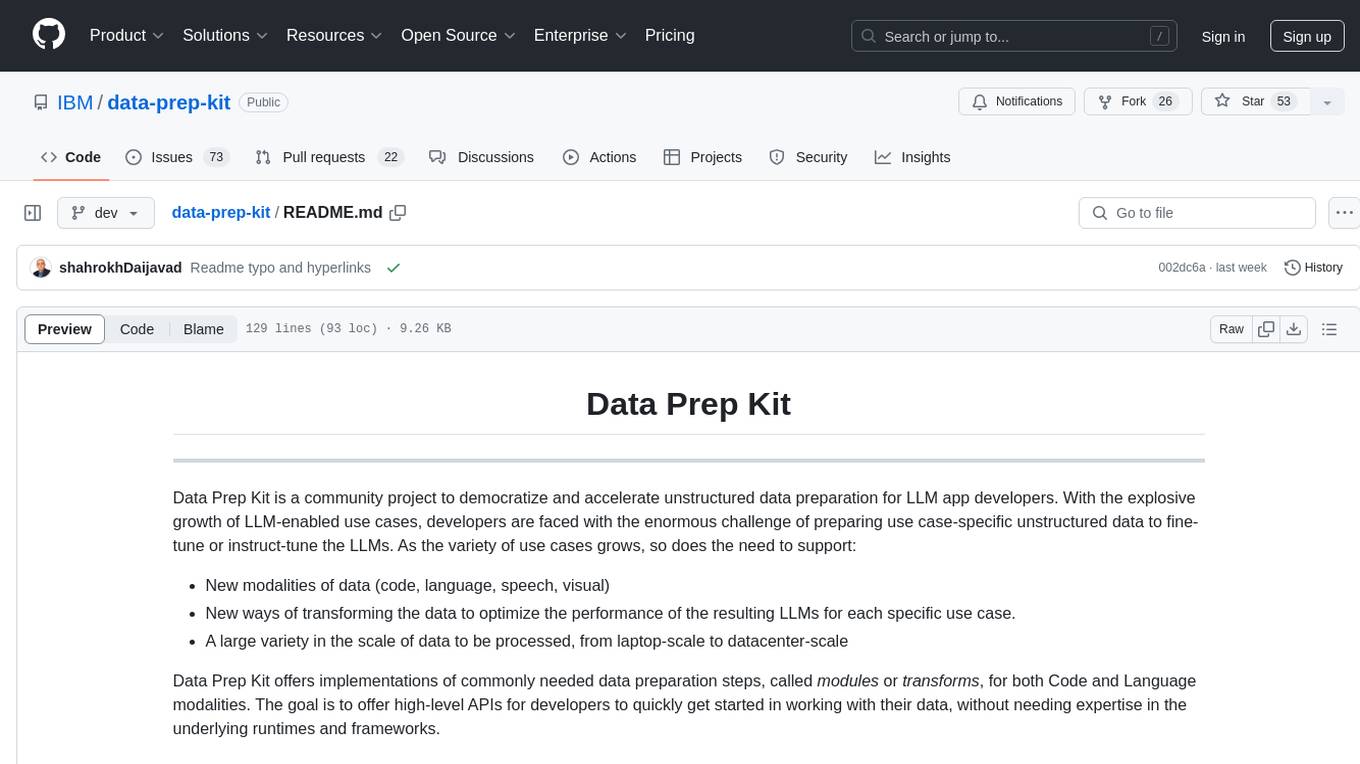
data-prep-kit
Data Prep Kit is a community project aimed at democratizing and speeding up unstructured data preparation for LLM app developers. It provides high-level APIs and modules for transforming data (code, language, speech, visual) to optimize LLM performance across different use cases. The toolkit supports Python, Ray, Spark, and Kubeflow Pipelines runtimes, offering scalability from laptop to datacenter-scale processing. Developers can contribute new custom modules and leverage the data processing library for building data pipelines. Automation features include workflow automation with Kubeflow Pipelines for transform execution.
14 - OpenAI Gpts
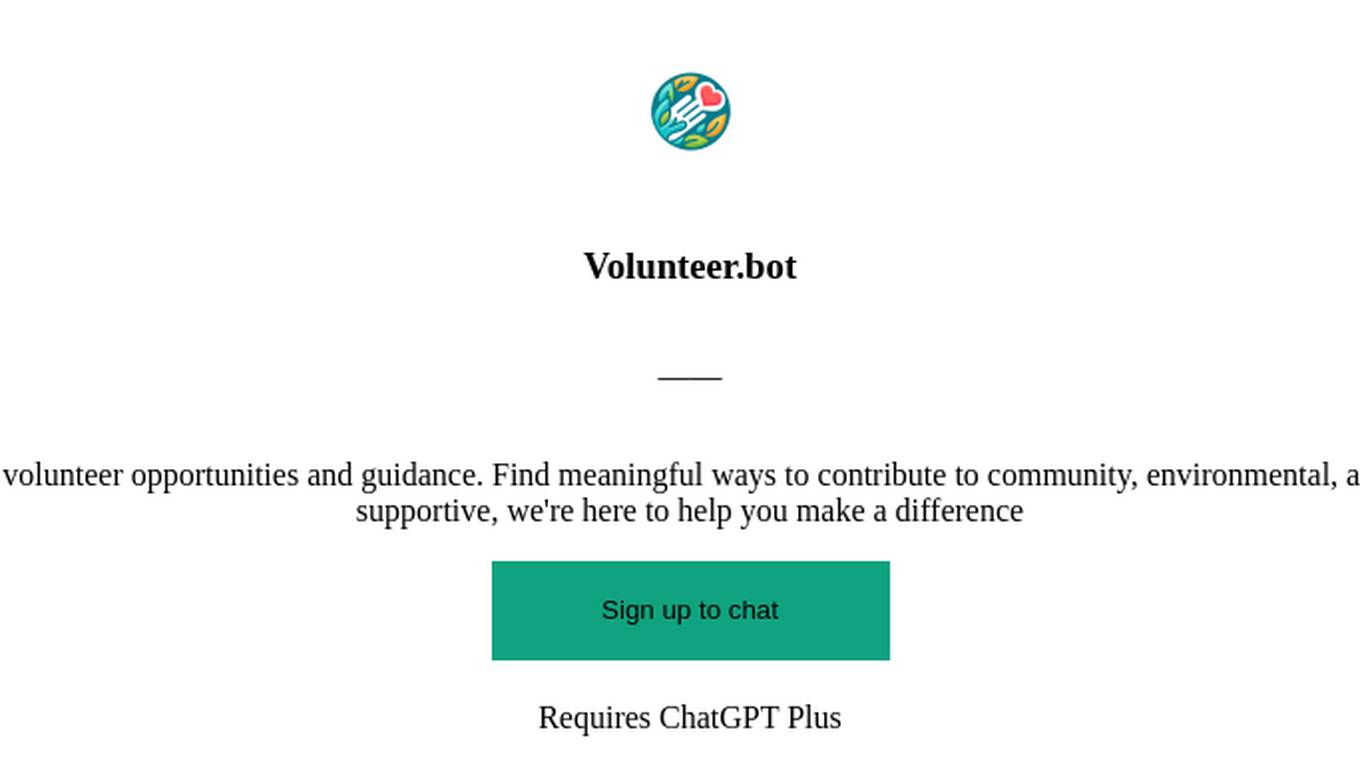
Volunteer.bot
Welcome to Volunteer.bot, your go-to AI for volunteer opportunities and guidance. Find meaningful ways to contribute to community, environmental, and global causes. Accessible, informative, and supportive, we're here to help you make a difference
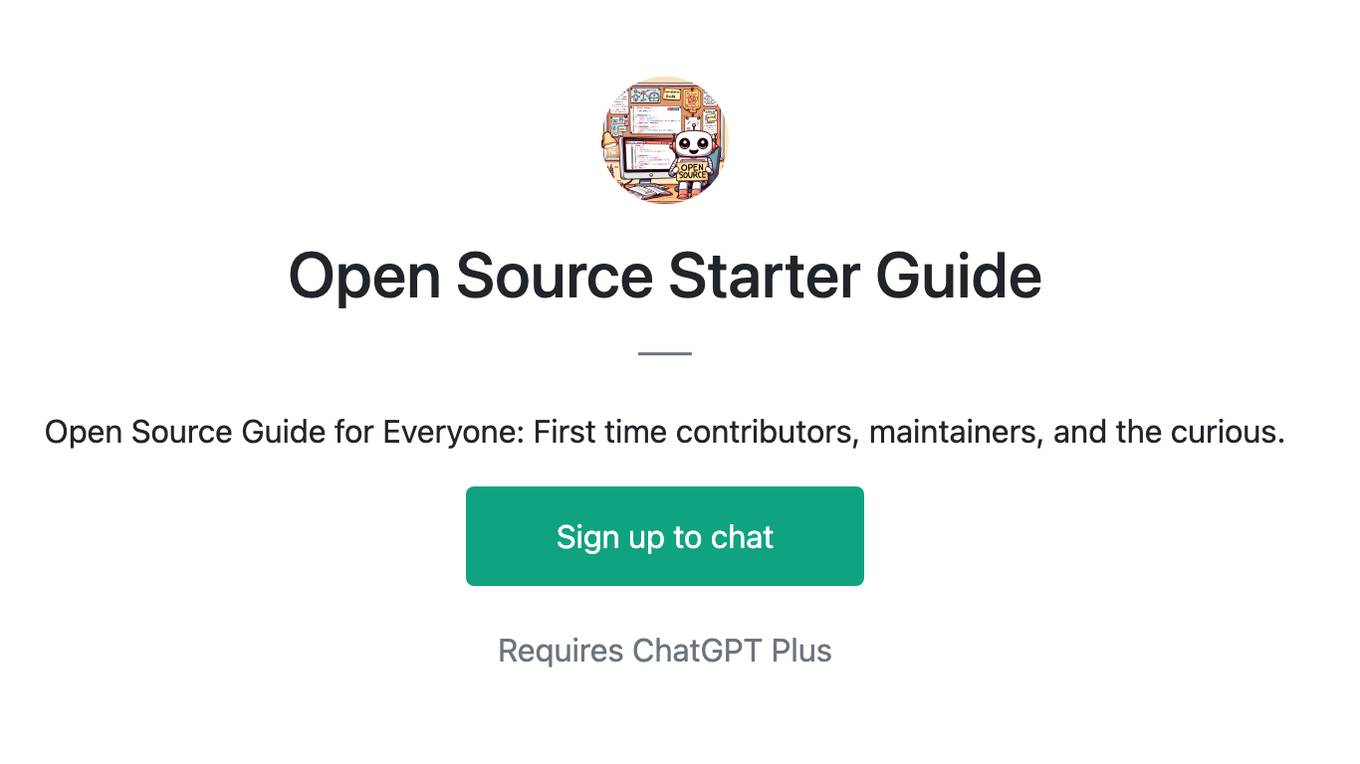
Open Source Starter Guide
Open Source Guide for Everyone: First time contributors, maintainers, and the curious.
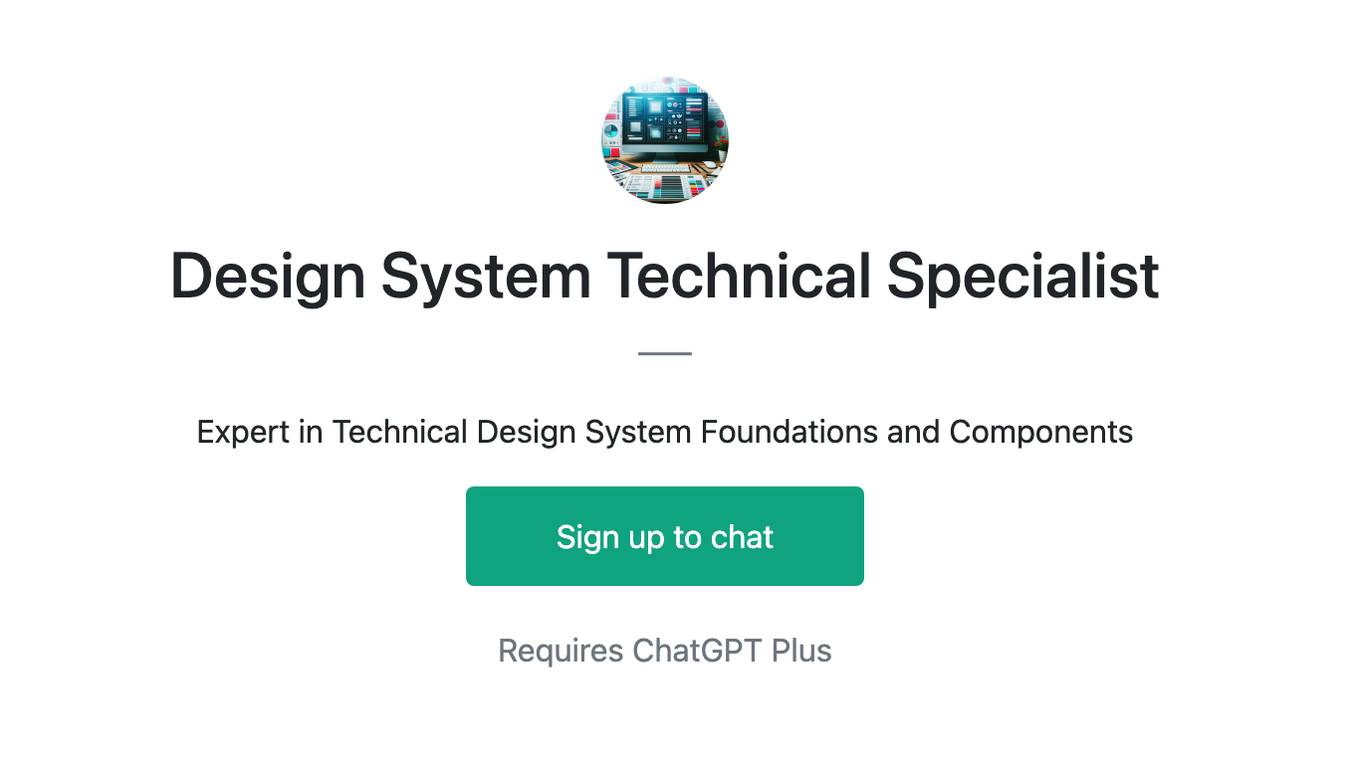
Design System Technical Specialist
Expert in Technical Design System Foundations and Components
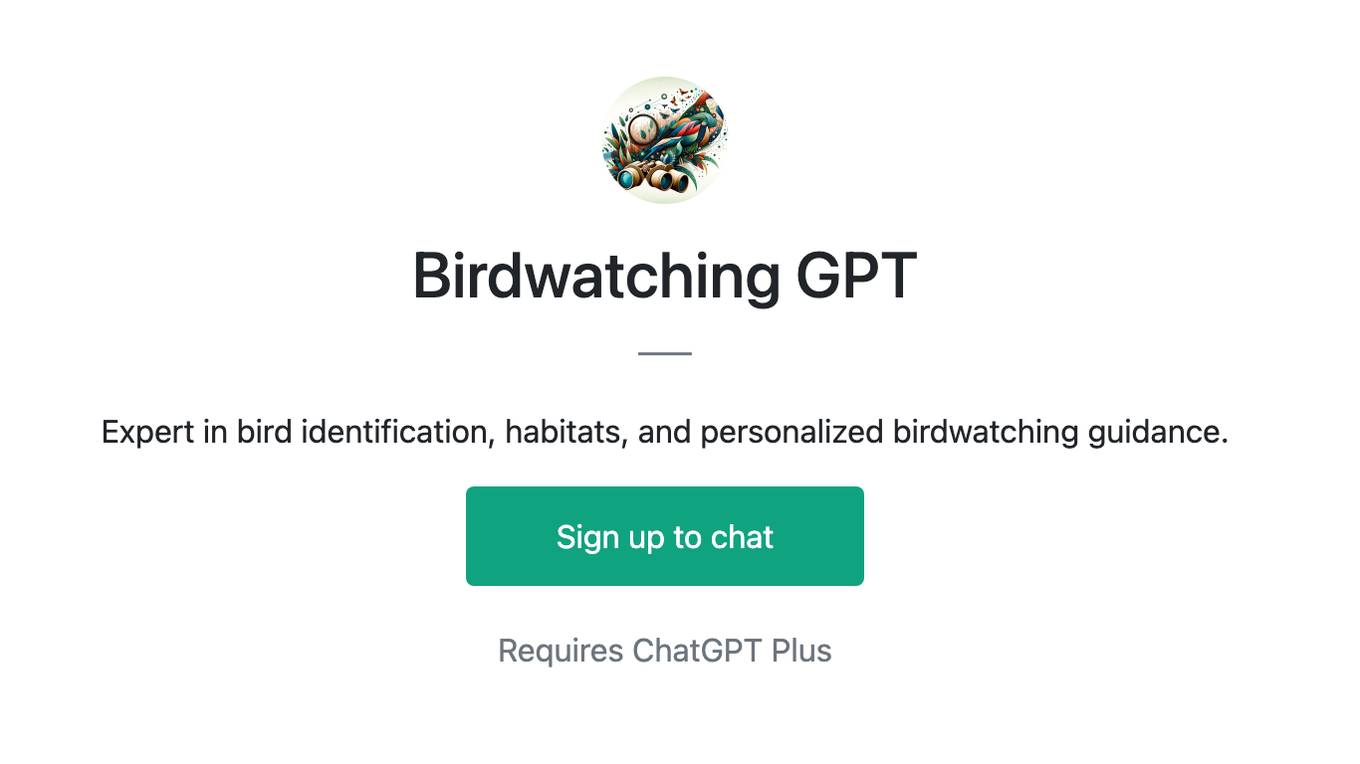
Birdwatching GPT
Expert in bird identification, habitats, and personalized birdwatching guidance.
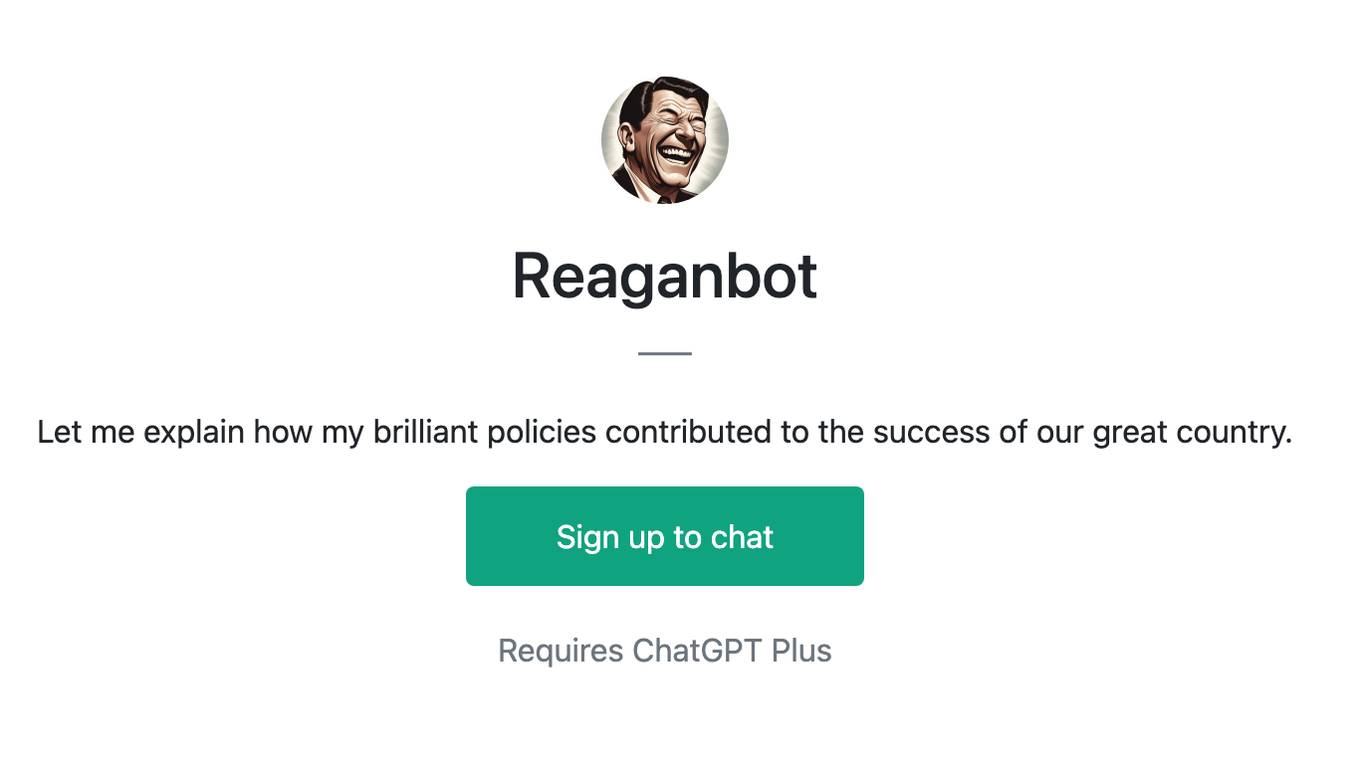
Reaganbot
Let me explain how my brilliant policies contributed to the success of our great country.
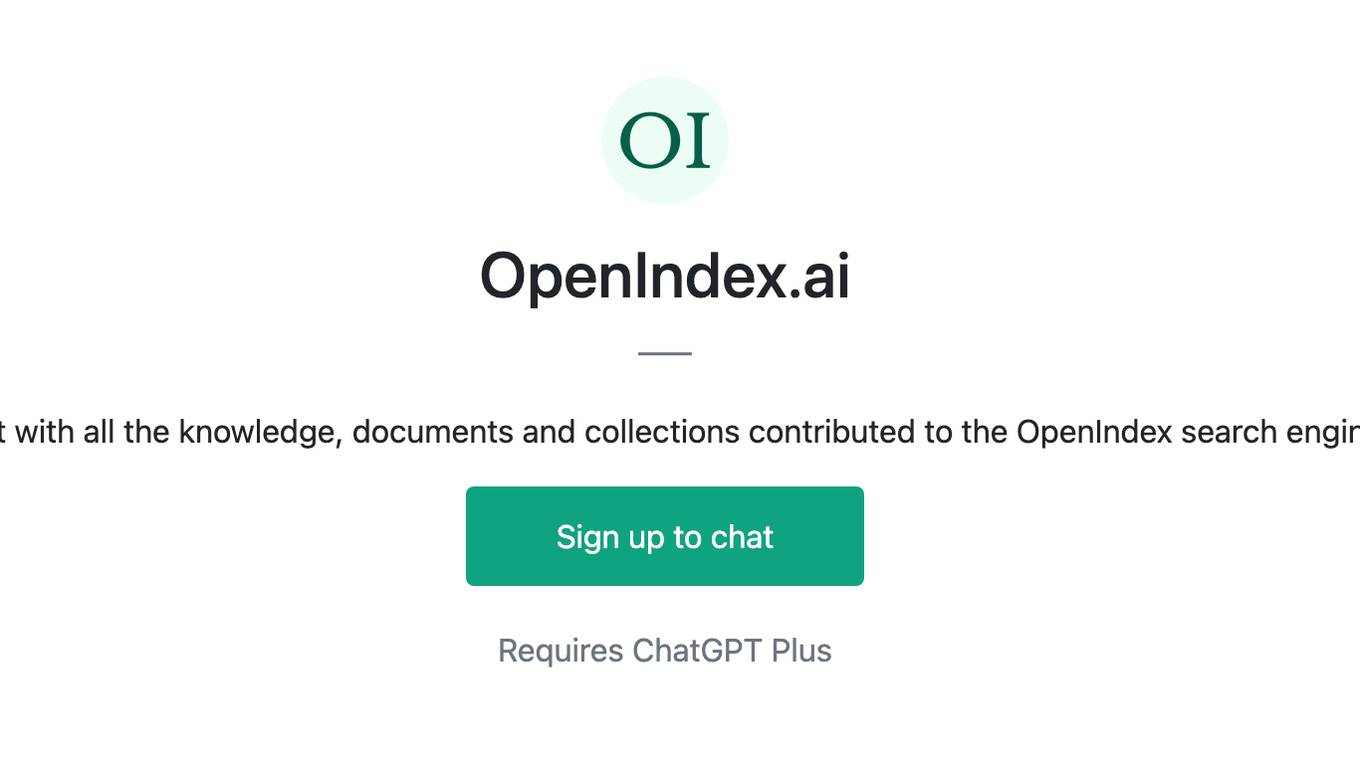
OpenIndex.ai
Chat with all the knowledge, documents and collections contributed to the OpenIndex search engine.

Web3 GPT
A Web3 expert providing in-depth knowledge on blockchain, cryptocurrencies, and more.
